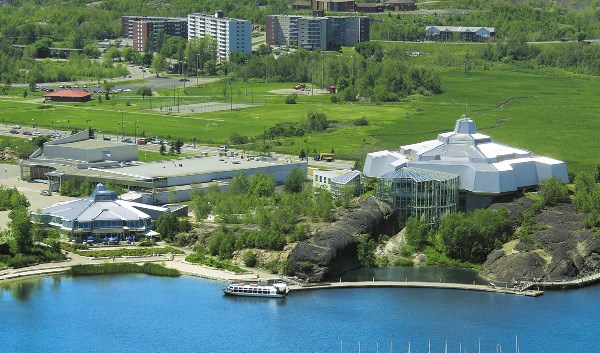The hard-hit tourism sector has forced Science North to temporarily lay off 22 employees.
Science North CEO Guy Labine said it’s important to stress these are temporary layoffs, and the focus of the organization is getting back to being an economic engine for the tourism sector in the North and bringing back the affected team members.
The summer months, in addition to March Break, are the busiest times of the year for the science centre, with a few thousand people visiting on the busiest day. Labine said those numbers dropped drastically due to the pandemic. Normally, tens of thousands of people visit Science North during the summer months, but the pandemic cut those numbers to fewer than 10,000.
About 37 per cent of the science centre’s budget comes from the province, while the rest comes from earned income through admissions, the sale of foods and retails, as well as memberships, Labine said.
“Those sources have dried up, and we’re very focused on wanting to grow earned income so we can get back to a normal operation,” Labine said.
Science North reopened the weekend of July 4 to members only after it was closed due to the COVID-19 pandemic. It opened to the public two weeks later.
Support from the province and the Ministry of Education allowed the science centre to redirect staff into producing teaching resources for teachers to use.
“That really kept us going from April until the end of June,” Labine said.
Many other attractions and science centres have had to make this decision much earlier than Science North, he said.
“We know it’s going to take some time for the tourism sector to recover, and it’s all hand on deck in terms of looking at what we can do to bring in more revenues.”
Labine said he’s a “glass-half-full kind of individual,” and his team is “absolutely focused” on getting back to a fully staffed operation.
“The biggest challenges we have with this is the uncertainty, and it’s difficult to plan based on that uncertainty, but we’re looking at what we can do to mitigate the impact further.”
